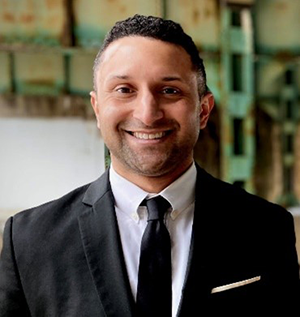I feel very blessed that I work at a congregation in a region of the country that has a small Jewish population. Here in Grand Rapids, Michigan, schools contact us all the time asking if they can bring their students to our synagogue and have us teach them about our faith. During every visit, one person always asks if we have different denominations. I'll tell them about our different movements, and they'll ask about the differences. I'll mention the concept of and inevitably, I'll find myself being very mindful of the language I'm using. Do Reform Jews keep kosher? Oy! What a loaded question! Explaining why Reform Jews do not embrace kashrut the way other movements do is not easy!
We acknowledge that the Torah is a historical document. We base our lives on the values, messages, and stories outlined in our sacred history, but we don't use it as a how-to guide for everyday life. Laws that worked thousands of years ago don't always apply to the modern world. Part of being Jewish in 2023 is saying to oneself, "This was a rule. We don't know why, but we respect the fact that it was a holy law in the past."
Being a Reform Jew is studying our sacred texts, becoming intimately familiar with them, then using that knowledge to say, "This law, in its literal form, does not apply to our modern lives. This other law does."
Leviticus 19:14 says, "You shall not insult the deaf, or place a stumbling block before the blind." I read that and it makes total sense. I can easily interpret that law to serve modern sensibilities of justice and decency.
This is very different from Deuteronomy 21:22:
"If a householder has a wayward and defiant son who does not heed his father or mother and does not obey them even after they discipline him, his father and mother shall take hold of him and bring him out to the elders of his town at the public place of his community. They shall say to the elders of his town, 'This son of ours is disloyal and defiant; he does not heed us. He is a glutton and a drunkard.' Thereupon his town's council shall stone him to death."
In 2023, we don't execute people for being disloyal, drunk, or defiant. But there is still something valuable to learn from this passage: the entire community is responsible for the way children develop; not just the child's parents.
The concept of interpreting God's laws is nothing new. The is full of the Rabbis arguing over every law in the Torah. Arguing different interpretations is what makes Judaism a unique religion. It is fully accepted that different Jews read the Torah and observe laws in different ways.
I like to look at a portion of Torah and think, "What is the big picture here? What is God trying to tell us?" When I read the laws of kashrut in Leviticus 11, I say to myself, "God really cares about what we put in our bodies." We are made in God's image. This body is a gift from God that we should not desecrate.
In Leviticus 11:3-8, it says that we may eat any animal with cleft hoofs that chews their cud. From that, I hear that God cares very much about which animals we eat and how their bodies work.
In Leviticus 11:32, we read that when impure food touches other food, that food becomes impure as well. There are many rules and regulations that speak to the origin, treatment, and preparation of everything we put in our bodies. There's a running theme here: mindful food production and consumption.
Reform kashrut might look like being mindful of your food. Where is your food coming from? How was your food treated in life? What chemicals are in your food? How were the people who made this food treated?
When people who keep traditionally kosher go grocery shopping, they are constantly turning packages over to see if this item is kosher. Reform kashrut practice could be making sure the item is Fair Trade and ethically sourced or that your meat is free range and raised organically.
Another Reform kashrut practice could be to buy local. My partner and I are fiercely loyal to our local farmer's market. We love to ask these people about their products. When we eat that food, we know its journey and that it was made with ethics in mind.
God wants you to care. Everything you put into your body should be consumed with consideration and thought. We see this throughout Leviticus 11. Food is sacred. We see that sacredness in ourselves when we are mindful about the food we eat. Keeping kosher isn't meaningful for everyone when it means following seemingly arbitrary rules. Keeping kosher is about our relationship with the sustenance God gives us. Just like our body is a gift, food is a gift.
Sh'mini offers us an opportunity to use discernment. Informed choices are the bedrock of our movement. It's a sacred task to study Torah while respecting its historicity. Can you find relevancy in these ancient words and connect them to our modern lives? This is our holy struggle - and struggling with God is very Jewish.
Explore Jewish Life and Get Inspired
Subscribe for Emails

